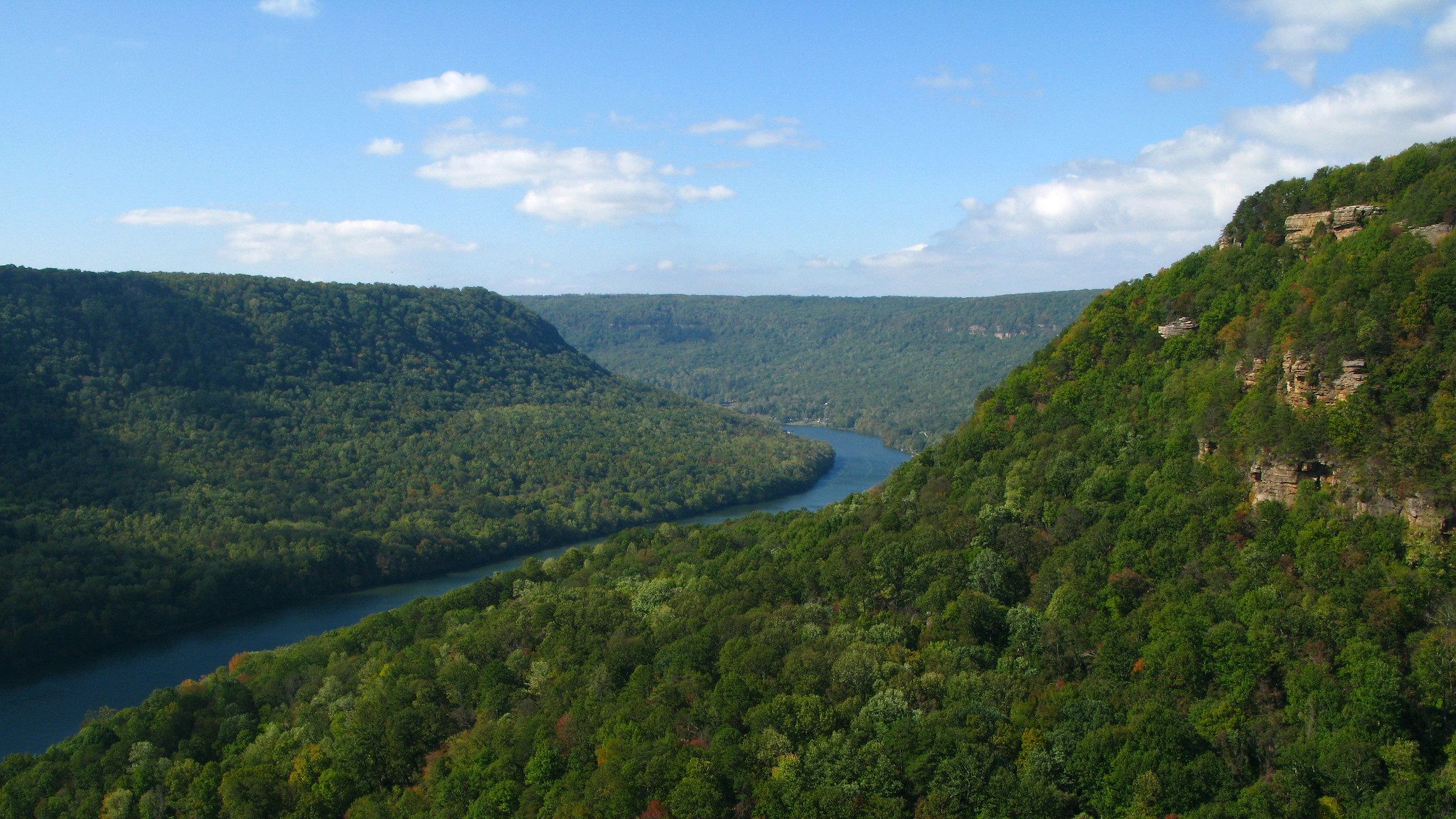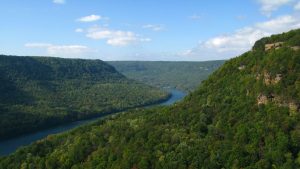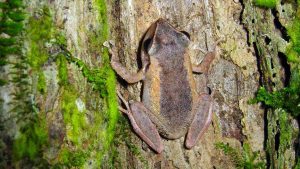June 2022 Newsletter

June 2022 Newsletter
Welcome to the Southeast Climate Adaptation Science Center’s June 2022 Newsletter.
For news and upcoming events related to the Southeast Climate Adaptation Science Center,
subscribe to our monthly newsletter.
SE CASC News | Resources | Publications | Tribal News | Partner News | Webinars | Events | Opportunities

Southeast Climate Adaptation Science Center News

Join us for the SE CASC 2022 Southeast Climate Adaptation Science Symposium on Sept. 19-21, 2022 in Gulf Shores, AL. Registration and call for abstracts for the Poster/Tools Networking session is now open. Learn more and register for the event.
A recording of our virtual Spring Seminar, Forecasting the Influence of Conservation Strategies on Landscape Connectivity, presented by Tina Mozelewski with the Northeast CASC on May 24 is available here. Learn more.
Join us for our next SE CASC Science Seminar, co-sponsored with SECAS as part of their Third Thursday Web Forum. Dr. Wesley Boone, NCSU, presents Brooding Over Climate Change: Implications for Eastern Wild Turkey Reproduction on July 21, 10AM ET. Learn more and register.
Researcher Spotlight: Learn more about Global Change Fellow Alexandria Nelson.
Provide input to the Southeast Regional Invasive Species and Climate Change Network (SE RISCC). The primary purpose of this network is to bring together land managers, invasion and climate science researchers, Tribal Nations, students, and representatives from state and federal agencies to reduce the compounding effects of invasive species and climate change. Take a 10-minute survey to assess your invasive species management priorities based on your role: Land manager survey or Research/Extension survey.
SE CASC-supported publication, Distinct pathways to stakeholder use versus academic contribution in climate adaptation research, evaluates academic contributions and stakeholder use of collaborative research. A product of SE CASC project, Best Practices for Project Design: Effectively Addressing Natural Resource Management Needs, authors are Amanda Hyman (UT), Steph Courtney (Auburn), Karen McNeal (Auburn Univ. Consortium PI), Lalasia Bialic-Murphy (UT), Cari Furiness (SE CASC Program Manager), Mitchell Eaton (SE CASC Research Ecologist), Paul Armsworth (Univ. of Tennessee Consortium PI). Read the news post.
2019-20 Global Change Fellow Mario Simon Pinilla-Gallego is the lead author and University Director Rebecca Irwin is co-author to Floral shape predicts bee-parasite transmission potential. Learn more.
USGS Research Ecologist Adam Terando and 2016-2017 Global Change Fellow Elsita Kiekebusch are co-authors to Climate change weakens the impact of disturbance interval on the growth rate of natural populations of Venus flytrap.
NCSU student researcher Joseph McIver received an award for a conference presentation of results from Impacts of Sea Level Rise and Associated Salinity Changes on At-risk Native Freshwater Mussels and Their Habitats in Atlantic Coastal Rivers. Learn more.
Celebrating Caribbean American Heritage Month with Caribbean Oral History: Voices of the Caribbean-Stories that help us prepare for the future. Learn more.
Conservation Corridor: “Strategy mapping” to effectively prioritize connectivity conservation.
Project Spotlight
Climate Change Implications for the Conservation of Amphibians in Tropical Environments

This project focused on understanding the potential impacts from climate change on tropical island ecosystems. Certain species are especially at risk because of limited land mass size, number of species that thrive in narrowly defined regions, and greater exposure to temperature changes. Adaptation to these conditions is made harder by a lack of guidance and information to aid in conservation efforts. Therefore, the researchers’ ultimate goal was to provide a better understanding of suitable adaptive conservation strategies for endangered and at-risk frog species in Puerto Rico. They identified 12 species of Coqui frogs that were at risk of becoming endangered and conducted a bottom-up study to establish a link between the local environment and demographic processes. This insight provides resource managers the tools needed to make adaptation decisions, allowing them to identify climate-resilient locations and implement managed translocations. The project was led by SE CASC principal investigators Jaime Collazo, Adam Terando, Krishna Pacifici, and Jared Bowden. Learn more.
Resources
Understanding the impacts of climate change along the Florida Coast. The team at Fort Matanzas National Monument in Florida partnered with the Climate Change Response Program to communicate the impacts of climate change along the Florida Coast.They created a short video and a climate change page on the park website. These resources highlight the growing impacts of sea level rise and extreme weather on the Florida Coast as well as what people can do to take action.
Resilience to Future Flooding Short Films. The Program for Local Adaptation to Climate Effects: Sea Level Rise created a series of short films communicating sea-level rise (SLR) to stakeholders around the Northern Gulf of Mexico. These include SLR basics videos, videos from funded projects, and the ‘Tides of Change’ feature film about local SLR. Learn more.
An Approach for Assessing U.S. Gulf Coast Ecosystem Restoration: A Gulf Research Program Environmental Monitoring Report. The National Academies of Sciences, Engineering, and Medicine Gulf Research Program developed this report which details a comprehensive approach to assess restoration activities against the backdrop of long-term environmental trends, allowing program-level adaptive management approaches to be used more effectively. Learn more.
Guide to Integrated NOAA Disaster Resilience in the Southeast and Caribbean. NOAA created this guide to define the roles, responsibilities, and resources for NOAA offices across the region. This guide develops a coordinated process related to planning for, responding to, and recovering from natural or anthropogenic disasters. Learn more.
In the Media
Meet the new chief: How an upcoming college grad plans to use his studies to lead his south Louisiana tribe | WDSU News
Why Homes Are Collapsing on Cape Hatteras National Seashore | Smithsonian Magazine
Habitat Protections for Florida’s Threatened Manatees Get an Overdue Update | Inside Climate News
Conservation projects restore natural water flow to parts of Great Dismal Swamp | Yale Climate Connections
The return of ‘good fire’ to eastern U.S. forests and grasslands | Food & Environment Reporting Network
Notable Publications
Climate change increases cross-species viral transmission risk. The circulation of viruses among wild mammals is a growing concern as climate and land use change increase viral sharing among previously geographically distant species. The authors wanted to understand the geographic distribution of viral spreading and see how it will change over time. To do this they used phylogeographic models of the mammal-virus network and projections of geographic range shifts for 3,139 mammal species under climate and land use change scenarios for the year 2070. The authors predict that cross species transmission of viruses will increase and that viral surveillance and tracking species range shifts will be extremely important to monitor and understand this change going forward. Link to article.
Future climate risks from stress, insects and fire across US forests. Forests are important carbon sinks that absorb carbon dioxide from the atmosphere, but many forests are disappearing due to development, disease, and changing climatic conditions. Loss of forests harms biodiversity, ecosystem services, and carbon cycle feedbacks. Insect infestations such as the bark beetle outbreak in North America is an important example of how climate change has increased the amount of stress on forests. The researchers argue that because of these growing stressors, it is important to quantify and understand drivers of historical risk. Understanding these drivers can inform conservation and management decisions in different regions of the U.S. To do this, researchers combined forest inventory data across U.S. forests, remote sensing data of wildfires, high resolution climate data, and downscaled climate model predictions. This allowed them to synthesize fire, climate stress, and insect-driven climate risks to forests, providing a good ‘first step’ analysis which can inform risk management and conservation decisions. The result of this study is a publicly available data set and interactive map. Link to article.
Characterizing U.S. drought over the past 20 years using the U.S. drought monitor. Drought is an increasingly complex threat facing many regions of the United States as climate change continues to exacerbate already drought-prone areas. The U.S. Drought Monitor (USDM) uses indicators across hydrological cycles and information from local experts to analyze drought conditions at a specific location and time in order to get the most holistic measure of drought. The authors used the USDM to understand the frequency, duration, and intensification rates of drought as well as the timing of onset, amelioration, and other measures for every drought on record. They used 5km grid cells covering the U.S and Puerto Rico. Based on this analysis, the authors found that droughts throughout the Western U.S. evolved slowly and lasted longer with fewer overall droughts and those in the Eastern U.S. were more frequent but were shorter in duration. This study argues that historical drought records will support future societal impact studies and aid in the evolution of mitigation strategies as well as strategies for drought resilience. Link to article.
Reducing uncertainty in climate change responses of inland fishes: A decision-path approach. When it comes to management strategies for inland fishes, in response to climate change, there are a lot of factors that go into determining the success or failure of certain actions. Resource managers are often missing important elements of information when deciding what actions to take and where those actions should be taken. This is especially true for understudied species and habitats such as inland fishes. The global reach of the Fish and Climate Change (FiCli) database is one way to get around this knowledge gap and can provide information about fishes’ biological responses to climate change. The researchers found, through an extensive literature review and analysis, that using both FiCli information with local fish data can have a positive impact on management and adaptation planning. The authors further argue that this research shows that management plans are not a one-size-fits-all solution and that there are many factors that go into the success or failure of adaptation plans. This is why the authors have created this decision-path approach when it comes to climate change impacts to inland fishes. Link to article.
Return on investment for mangrove and reef flood protection. Coastal and marine restoration, especially of coral reefs and wetlands, has been increasingly regarded as an important natural defense to coastal hazards. Historically, there has been a large emphasis on responding to natural disasters with little funding towards forward looking restoration initiatives. The researchers of this study utilized risk industry methods to show that coral reefs and wetland restoration could yield high return on investment for 20 Caribbean countries. They further assessed the benefits vs costs of much needed coastal and marine restoration initiatives so that investors and government agencies would be more willing to implement these projects. To do this, the authors analyzed return on investment by looking at flood protection benefits versus costs of restoration to get a benefit-cost ratio. Results show where there could be significant returns on investment for coral reef and mangrove restoration across the Caribbean. Link to article.
Tribal News
Visit USET Climate Change Headlines for updates on information regarding climate science events, funding opportunities, best practices, and highlights from across the USET region.
10th Annual Rising Voices Workshop will be held virtually from September 14-16, 2022. This year’s workshop theme is Emergent Knowledge through Indigenous and Earth Science Collaborations. More information.
Institute for Tribal Environmental Professionals and Climate Science Alliance are looking for a Tribes and Climate Change Summer Intern. Internships will engage and emphasize intergenerational teachings between elders and youth to pass on cultural teachings, language, and traditional ecological knowledge. To apply, send a cover letter and resume to Althea Walker awalker@climatescincealliance.org. For general questions contact kelsey.morales@nau.edu.
Choctaw Nation of Oklahoma Cultural Services Department and its partners created this short documentary following Choctaw basket makers as they harvest river cane, weave baskets, and explain the history and uses of this craft.
Native American Fish & Wildlife Society is accepting applications for the 2022 NAFWS Regional Scholarship program to help Indigenous students pursue education in the field of natural resources in fall 2022. Applications due July 1, here.
Native American Fish and Wildlife Society is hiring two Assistant Tribal Climate Resilience Liaisons to work with the Alaska CASC to build collaborative and meaningful relationships between partners across the state. To apply, email a resume, cover letter, three professional references, BIA Form 4432, and official transcripts to JThor@nafws.org by July 8.

Regional Partner News
The Resilient Nation Partnership Network: Announced the Release of Building Alliances for Climate Action Resource.
Department of the Interior: Proposes Expanding Conservation Technique as Climate Change Threatens Greater Species Extinction.
Southeast Conservation Adaptation Strategy: Results from draft Blueprint review at workshops and next steps.
NOAA: Predicts above-normal 2022 Atlantic Hurricane Season.
U.S. Fish & Wildlife Service: $7.6 Million in Grants to Support Imperiled Species.

Webinars
Find more upcoming events in our calendar.
June 21 | 1pm-2pm | Climate Adaptation for Forest-Dependent Wildlife Webinar Series
June 23 | 1pm-2pm | America the Beautiful Challenge Grant Application Workshop
June 27 | 3pm-4pm | Deepwater Horizon Project Tracker Use Cases Jes Skillman, Ducks Unlimited; Lindsay Withers & Danny Paez, Trust for Public Land
June 29 | 1pm-2pm | June RNPN Ideation Hour: Extreme Heat Resilience
June 29 | 2:30pm-4pm | Tribal Nations and Indigenous Peoples Engagement in NEPA: Challenges and Best Practices
June 30 | 12pm-1pm | Assessing the vulnerability of coastal communities to marine heatwaves: a comparison of the U.S. and Australia
July 7 | 9am-10am | Climate and Conservation Coffee
July 12 | 10am-11am | Southeast Climate Monthly Webinar
July 19 | 1pm-2pm | Climate Adaptation for Forest-Dependent Wildlife Webinar Series
July 21 | 10am-11am | Southeast CASC/SECAS Science Seminar – Wes Boone, NCSU
Upcoming Events
July 13-14 | Tribal Climate and Health Adaptation Summit | Pala, CA
Aug. 8-11 | Tribal Lands and Environment Forum | Milwaukee, WI & Online
Sep. 19-21 | SE CASC 2022 Southeast Climate Adaptation Science Symposium | Gulf Shores, AL
Oct. 10-11 | Kenan Institute for Engineering, Technology & Science inaugural Climate Leaders Fall Symposium, Think and Do: Climate Challenges and Solutions | Raleigh, NC
Dec. 12-15 | A Community on Ecosystem Services (ACES) Conference | Washington, DC

Opportunities
Student Announcements
The White House has announced the Fall 2022 White House Internship Program which will run Sept. 12 through Dec. 16. Applications are due June 24, here.
Tepa Companies is accepting applications for the Tepa Native American Scholarship Fund which was established to build personal and lasting relationships with students who will become future leaders in Native American communities. Tepa Companies will be awarding $1,000 to two Native American Students. Apply by June 30 here.
Science Communicators of North Carolina are looking for students or beginners interested in Science Communication for a year-long, paid internship. Apply by June 30 here.
Hiring Announcements
U.S Forest Service is looking to fill six Tribal Relations Specialist positions across the country. Apply here.
The Northeast CASC, in partnership with the USGS and USFWS, is seeking two postdoctoral research scholars for a research fellowship looking at salt marsh conservation and restoration. Applications are due by July 20 here.
Funding Opportunities
Department of the Interior Fish and Wildlife Service has opened applications for a Science & Implementation Support in the Southeast grant. Apply by July 13 here.
National Forest Foundation is accepting applications for the 2022 Matching Awards Program. Apply by June 22 here.
U.S. Fish and Wildlife Service is accepting applications for the National Coastal Wetlands Conservation Grant program which provides $1 million to coastal and Great Lakes states to protect, restore, and enhance coastal wetland ecosystems. Apply by June 24 here.
Northwest Climate Adaptation Science Center is hiring a Deputy University Director to help implement actionable science and adaptation research across the region. Apply by July 15 for prioritization, here.
Miscellaneous
NOAA on behalf of the U.S. Global Change Research Program is soliciting nominations for Review Editors for the Fifth National Climate Assessment (NCA5). Nominations are due by July 1. More information.
- Categories:



